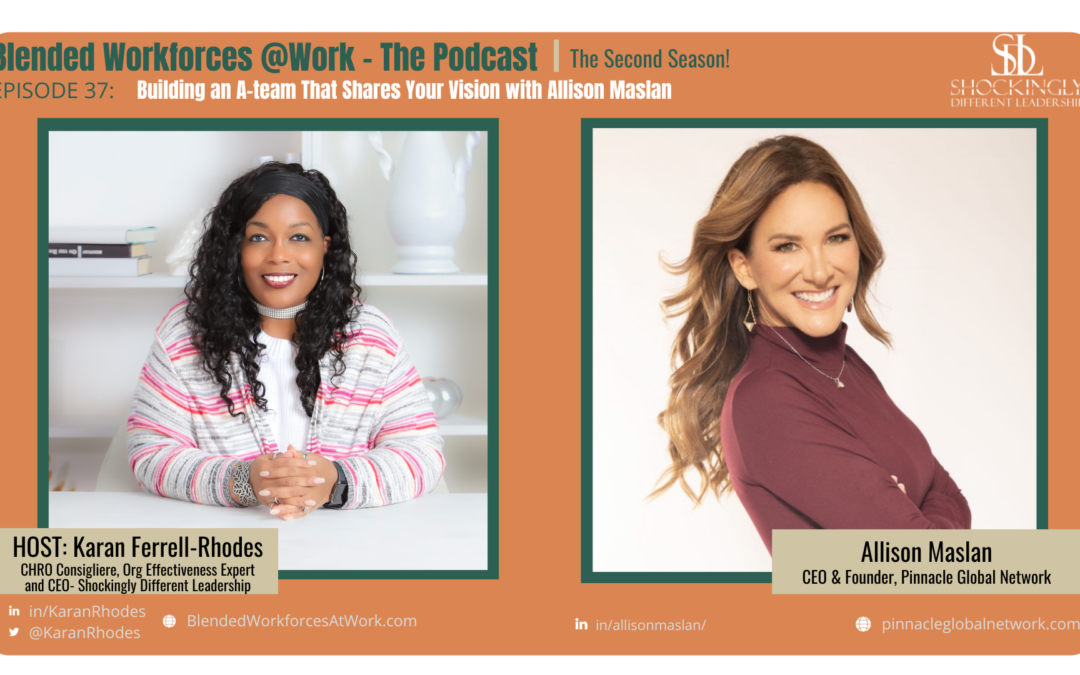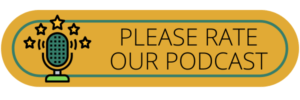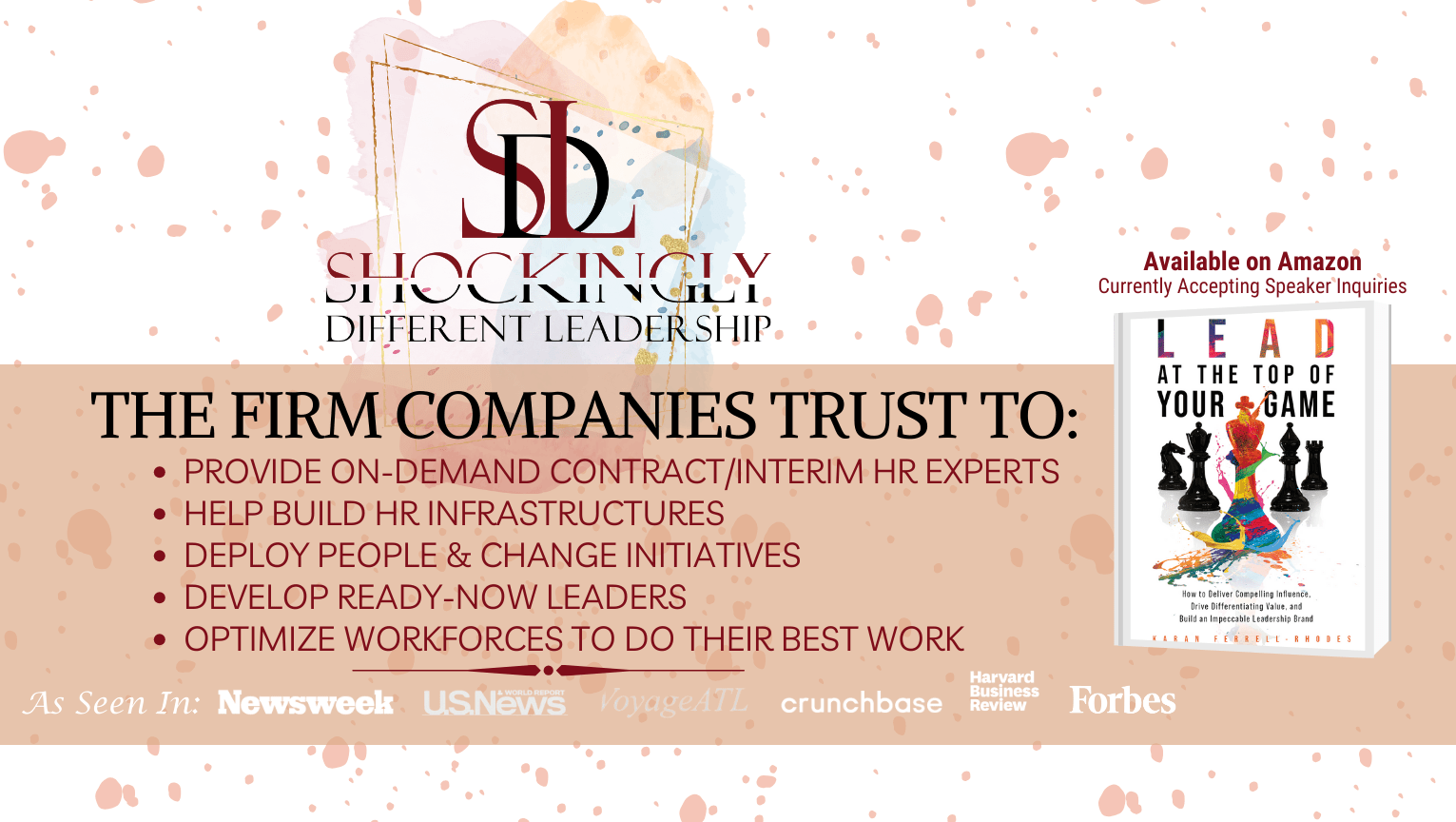IN THIS EPISODE, KARAN FERRELL-RHODES INTERVIEWS ALLISON MASLAN.
During today’s conversation, Alisonshares insights on building scalable companies. Sharing her journey, she reflects on lessons from her father, highlighting the importance of focusing on what works.
Allison introduces the Scale It Method, which helps CEOs develop a clear vision and step-by-step strategy for growth. She discusses AI’s impact, changing consumer behaviors, and the importance of company culture. She also emphasizes attracting top talent, strategic decision-making, and the value of mentorship in effectively scaling businesses.
Allison Maslan is the founder and CEO of the Pinnacle Global Network. After experiencing burnout and a car accident, Allison shifted her approach to creating empowered teams.
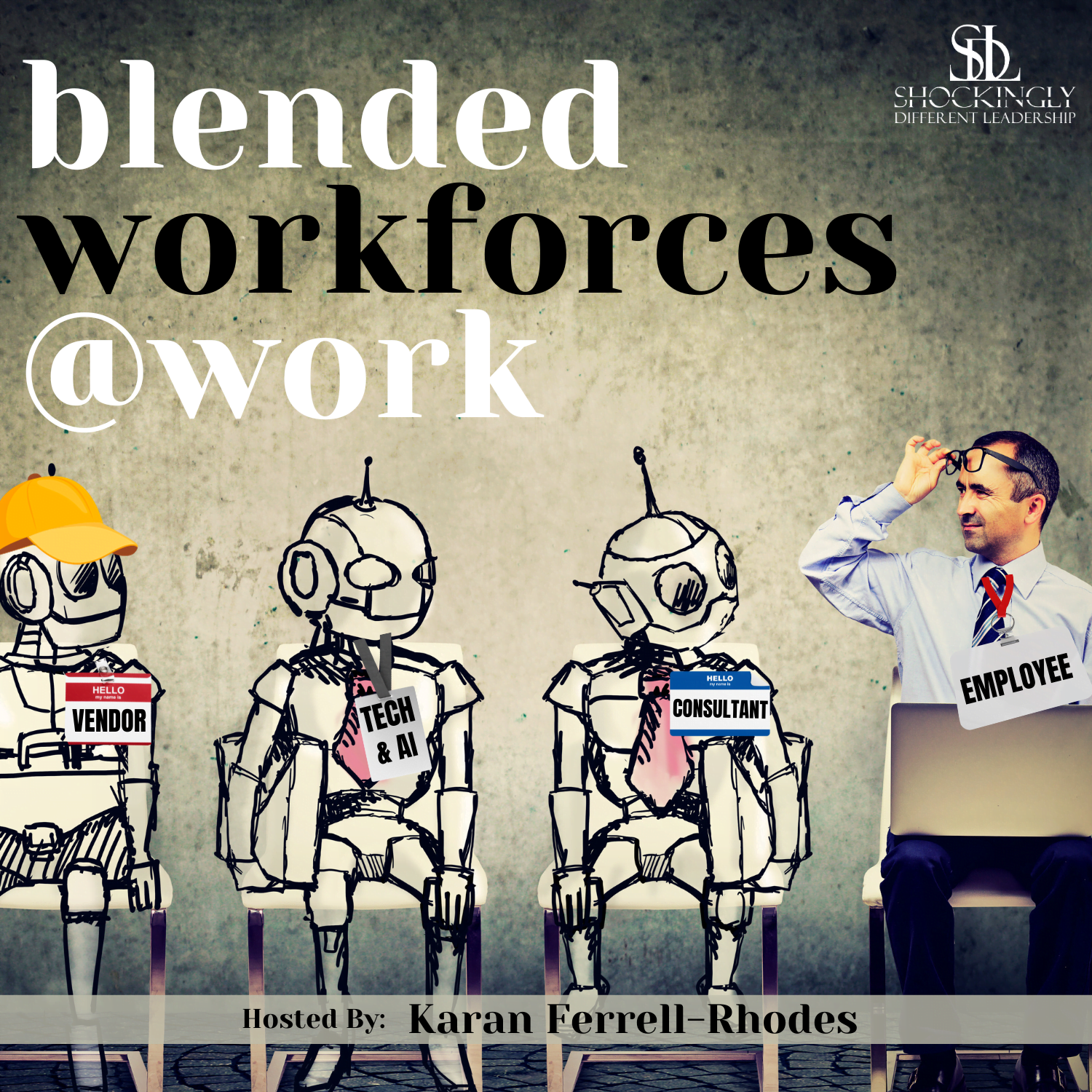
Posted by
SDL Media Team
Rather view our video podcast?

WHAT TO LISTEN FOR:
- What is the Pinnacle Global Network, and how does it help CEOs?
- How does the Scale It Method assist in scaling businesses?
- What role do CEO mentors play in the mentorship program?
- How is AI influencing business strategies for CEOs?
- What challenges do CEOs face in attracting and retaining top talent?
- Why is company culture necessary for business growth?
- How can strategic decision-making help in scaling a business?
- What strategies can companies use to hire and train the right employees?
“It’s hard for business owners to let go.”
FEATURED TIMESTAMPS:
[03:15] Allison’s Personal Life
[04:48] Building Scalable Companies and Overcoming Burnout
[09:52] The Scale It Method and Mentorship Program
[13:09] Trends and Challenges in Scaling Businesses
[17:31] Signature Segment: Allison’s entry into the LATTOYG Playbook: Attracting and Retaining Top Talent
[26:47] Signature Segment: Allison’s LATTOYG Tactic of Choice: Leading with Strategic Decision Making
[30:28] Contact Information

ABOUT ALLISON MASLAN
Allison Maslan, CEO of Pinnacle Global Network, was recently named one of the “Top 10 Women Entrepreneurs to Watch” by Forbes Magazine. She is the Wall Street Journal Best Selling Author of Scale or Fail, which is endorsed by Daymond John and Barbara Corcoran of Shark Tank. Allison’s built 10 successful companies over the last 40 years.
LINKS FOR ALLISON:
- Website: pinnacleglobalnetwork.com/
- LinkedIn: linkedin.com/in/allisonmaslan/
- Facebook: facebook.com/allisonsfans
- Instagram: instagram.com/allisonmaslan/
ADDITIONAL RESOURCES FOR YOU:


Episode Sponsor
SDL is the go-to firm companies trust when needing to:
- supplement their in-house HR teams with contract or interim HR experts
- implement leadership development programs that demonstrate an immediate ROI and impact on the business

Episode 37 | Building an A-team That Shares Your Vision with Allison Maslan
Allison Maslan 00:01
Most business owners will hit a ceiling of growth. And usually by that time, you hit that 1 million mark. And up at this point, if they’re not hospitalized or something, right, they’re so excited to get there, but then they realize, Oh my gosh, you know, I’m working 6080, out. Hours a week, and by the time I pay my awesome team members and my expenses, there’s really nothing left.
Karan Rhodes 00:01
Blended workforces are one of the hottest talent strategies today, where employers are using a mix of traditional employees with external resources like independent contractors, coaches, consultants, vendors, and technology solutions, all in order to enhance competitiveness, ensure cost flexibility, and expedite business goals. But how are the successful companies infusing blended workforces into their business strategy? And what are the critical success factors and pitfalls to avoid during implementation? And on the flip side, what does it really take for suppliers to improve their chances of finding and landing contract opportunities? The devil is in the details, my friends! I’m your host, Karan Ferrell Rhodes, and it’s time to get smarter about Blended Workforces at Work!Hello, my superstars. This is Karan, and welcome to another episode of the blended workforces at work podcast. Boy, do we have a fantastic guest with us today, on today’s show, we’re absolutely thrilled to feature Allison Maslan, who’s the founder and CEO of the Pinnacle Global Network. Want to get that right, and the network is an organization that mentors CEOs on scaling their businesses and becoming an attractor of top talent. And you know that is directly in our wheelhouse on this podcast, so an excellent topic that we want to go deeper on. Now, Allison was recently named one of the top 10 women entrepreneurs to watch by force magazine, and it’s the Wall Street Journal, Best Selling Author of the book, scale or fail. Now you know, as you’ve always for my more seasoned listeners, you know, I always try to give you updated data and research, and you know, some of the leading research on CEOs really emphasizes that one of their top concerns is about the lack of talent that the company possesses, whether it’s internal talent or external talent that they leverage, and it’s really affecting their market competitiveness. And so knowing that, I just knew Allison would be a fantastic guest with whom we want to talk about this really interesting dynamic. So welcome to the show. Allison,
Allison Maslan 02:14
Oh, Karan, I’m so happy to be here. Thank you for inviting me.
Karan Rhodes 02:18
Absolutely, absolutely. I know you’re a very busy lady, but for you to carve out a little time to share with us and share your insights and perspectives, we’ll be forever in debt to you well before we get going, and there’s a lot we want to talk about, and I know we have a little bit of time to do it, and we always love to know just a little bit more about our guests. So for just as much as you feel comfortable, would you mind giving us a sneak peek into your life outside of work?
Allison Maslan 02:46
Absolutely Well, I’m coming to you right now from our home in zihuataneo, Mexico, and my husband and I got engaged here almost 20 years ago, and we fell in love with it here, and so we now live here five months of the year. We’re in San Diego the rest of the time, and so it’s a little oasis for us, and it helps me, as the CEO of a company, to clear my head and make clear decisions and get creative and so forth. I’m also a trapeze artist, and I have a in my home, at my home, not in my home, but in our yard in San Diego, I have a full size flying trapeze rig, and I’ve been doing that for about 25 years. So , that’s a lot of fun. Wow.So you win the most interesting hobby of the Year Award, because that is amazing. I bet it’s a great way to stay in shape too, isn’t it? It definitely is. It works every tiny ounce of of your body and your brain too, because you got to face your fear up there and
Karan Rhodes 03:53
Right. Oh, amazing. Well, thank you so much for sharing just a tad about you personally with us, and I love to kind of turn the tables a bit, and let’s talk a little bit more about some of your personal insights. But before we do that, I would love for you to share kind of at a high level your professional story, kind of where you started and how you ended up founding the pinnacle global network.
Allison Maslan 04:20
Certainly. Well, I started in business when I was 19. I grew up in a very entrepreneurial family, and so I spent a lot of time with my dad growing up and watching him build his company. And so it was just a natural thing for me to start early, although I had really no clue what I was doing. Make it up along the way, and I built 10 companies over the last 40 plus years. It became more savvy as I evolved, and one of the biggest lessons I learned from my dad was the. To do more of what’s working and drop what’s not. And I remember when he told me that when I was younger, I thought, oh my gosh, is that the best you can do? Dad, like, that’s a great strategy. I didn’t understand how powerful that was. And so just evolving over the years, I’ve really focused on leadership. And, you know, in the early days Karan, I didn’t know how to scale. I was that control freak in the business. I thought I had to have my hands and my eyes on everything, yeah, and I completely burned out. I ended up having a terrible car accident just from the stress of it all. And that was my big wake up call to figure out, how do you build a scalable company? How was it that my clients, like Ben and Jerry’s back then Charlotte Roose Allstate, how was it that they had 1000s of employees, but you didn’t see the CEO standing over everyone like an orchestra leader? And so that became my mission to figure out, how do you build a team, empowered, team, managed company, not dependent on the CEO. And so by the time it came to my 10th company, and trying to figure out what I was going to do, people were asking me, Allison, can you teach me? How do you do this? And that really was how Pinnacle global network started. Now, 16 years later, we have 60 employees. We have a team of 40 mentors that help our clients to grow and scale and so forth. So. So the vision has really evolved over the years, but that’s how it all began.
Karan Rhodes 06:40
The time that you were burnt out, what services were you offering at that time?
Allison Maslan 06:44
I had a full service advertising and public relations firm in San Diego called the barrelli group, and I was working day and night, creating ad campaigns, servicing our customers. I didn’t really know how to lead a team. I mean, we had some team members, of course, but, yeah, I was just putting all the pressure on myself, like so many business owners, do you know. And what I realized over the years Karan was that literally millions of business owners suffer with that same predicament. You know, if I were to drive down the street and I go into a restaurant or a fitness center or a shop, you know, you generally will see the owner in there working in the operations, yeah, not being the visionary leader, because they feel they absolutely have to, and they end up getting health issues, often divorce just because the business becomes all consuming. So this really has become my mission to go, hey, it’s not about the hustle, it’s about creative strategy.
Karan Rhodes 07:53
I love that, and I will just be honorable and honest and say I’ve had to learn it the hard way too. We’ve been…
Allison Maslan 07:59
Uh, Yeah, right, yeah, our firm.
Karan Rhodes 08:03
I founded it in 2013 after a long tenure at Microsoft, and the first I’ll say, three years how you describe those entrepreneurs? I was a solopreneur at the time. I felt every inch of what you just described. And I was working with a coach, business coach, and he said you’re going to have to make a tough decision of whether you’re wanting to stay this route or if you want to scale your business in a way that you’re not having to do everything you become your own employee, basically. And so three years in, we changed our business model, quite similar to what you have done. So, yep, I’ve been there, done that.
Allison Maslan 08:45
Yeah. Well, congratulations, you know, and getting to the other side, and it’s always a work in progress.
Karan Rhodes 08:50
Always
Allison Maslan 08:51
Hard for business owners to let go. It’s the hardest thing that you will ever do in your business, because it’s your baby, and there’s a lot of fear around that and trusting a team. So it’s a whole it’s a whole process, but it’s completely transformational. When you do get to the other side,
Karan Rhodes 09:10
It is. We’ll share a little bit more, maybe one level deeper, about the pinnacle global network, and what experience and what you, you know, actually do to help CEOs scale their businesses.
Allison Maslan 09:24
Yeah, so when a business is growing, we tend to take the way that we were operating the business in the early days and just try to expand that as we grow and most business owners will hit a ceiling of growth. And usually by that time, you hit that 1 million mark. And up at this point, if they’re not hospitalized or something, right, they’re so excited to get there, but then they realize, Oh my gosh, you know, I’m working 6080, out. Hours a week, and by the time I pay my awesome team members and my expenses, there’s really nothing left. And so we help them to build a much bigger vision for their company through our method. It’s called the scale it method, and I talk a lot about that in my book, scale or fail, and then we match each of the CEOs with a high level CEO mentor that’s on our team. And all of our mentors have built multi million dollar companies. They, many of them have exited companies, acquired companies have had international businesses, so they’re very savvy, and they walk their talk. And so when the CEO is matched with a mentor that they become their confidant and their strategist for the year, or however long, they stay with us. We have many members that are with us over 10 years. Oh, wow, and yeah. And then we just help them reverse engineer. So once we get clear on the vision, then we reverse engineer it. We put a step by step plan together using the strategies and the tools of our method, and the mentor just walks with them along the journey, helps them make those important decisions that are necessarily along the way, because, you know, things happen, they do and right, like a pandemic or all kinds of changes in the economy, or team members leave new revenue streams need to be created. And then we also put the members into small mastermind groups with other peers, and their mentor is on there as well. And so these groups help them to stay accountable, keep the momentum going. They become deep friends with these people because, you know, as you know, most business owners are surrounded with people that think they’re crazy, yeah, have no idea what they’re talking about, and so you often can’t really share what’s on your mind. So it’s important to have a community around you, because it’s lonely at the top, and then we do great events and trainings, so it’s kind of a one stop entity, enterprise for all the things that you need as a business owner to help you grow and scale.
Karan Rhodes 12:27
That’s amazing. I’m curious if there are some top, maybe one or two trends that you’re seeing that is really taking up the discussion these days with your CEOs.
Allison Maslan 12:41
Well, AI, of course,
Karan Rhodes 12:43
Of course, right?
Allison Maslan 12:44
And there, you know, there can be fear, there can be overwhelm, because there’s just so much, and it’s changing every day, and it’s going to just continue to do so, yeah, so it’s important that the business owners embrace it, figure out a way to incorporate it in their business, or many businesses will be disrupted. That’s right. And so we want them to be thinking ahead now on. Okay, do they need to change the way that they’re working to they need to change their branding and for companies like marketing companies and things that a lot of people are using AI for those types of things. How do they position themselves still as very necessary to the growth of the company? So AI is definitely one. There’s also some interesting data out there about these new medications that are out there that people are using, the GLP ones, yeah, and so products such as, because we work with all industries across the board, the tools and strategies we have our industry agnostic which makes it a richer conversation. You you know you can learn, let’s say you’re in the beauty industry. You can learn from someone in the recruiting industry, or you could learn from their customer service, or how they import products and so forth, rather than just masterminding with people in your own industry. But there’s some new data out there with these medications coming on the scene that are going to change buying behavior over the coming years in because they impact impulse control and so people will be making less emotional decisions, food purchases, yeah, weight loss programs and I think people are going to be a big industry that is is rising, our health spas, med spas, those kinds of things. So from what we’re seeing here, that there’s going to be some new industries. That are going to arise out of this change of people losing weight and getting having an opportunity to get healthier. Of course, I’m no expert on this medication or anything like that, so
Karan Rhodes 15:15
Sure, sure,
Allison Maslan 15:16
That’s a whole other topic that you could have somebody else on. But I have been, we have been seeing that this is something that is coming down the pipeline. I think people need to be aware of.
Karan Rhodes 15:26
I agree. I read. I’m a voracious reader, and I did read some articles from very reputable sources of that this that is going to be a huge it’s already disrupting, but it’s going to be even more in the future. And you’re right for like, it’s going to impact food corporations or food companies, but grocery stores, food outlets, Fast Fast Food maybe, yes, all of that. So I just want my listeners to know that’s a great piece of insight, because that you’re absolutely right, it’s going to really change things. So yeah, just cause me for a pause, because I read maybe a couple months ago an article about that. And you know, one of the reasons why we wanted to definitely have you on the show is because, you know, the way we define blended workforces is, you know, it’s not work from home. It’s all about how companies and organizations end up getting work done for their businesses. And it’s, you know, whether it’s traditional employees or external talent or technology, you know, all of these sources help them decide what is the most viable and cost effective ways to get work done. So I’m curious, do you do your members in the network? Are they really thinking about, as they’re scaling, how they would like to scale, and what talent and technologies are they looking to evaluate, you know, as they make plans for the feature.
Allison Maslan 17:03
Yeah, it’s a huge topic. I mean, once your business gets past that seven figures, and we primarily work with seven, eight figure CEOs, it’s all about their people. It’s all about team. So you’ve got the hiring. Where can we find our people? And we can talk about that. How do you onboard? You know, it used to be. I mean, when I years ago, would be, you’d bring somebody on and go here, here’s it. Habr sy it, then
Karan Rhodes 17:33
Welcome to the team
Allison Maslan 17:35
That doesn’t fly anymore. So there’s a whole process of onboarding. Because it’s not just finding these people, you want to keep them,
Karan Rhodes 17:42
Yes,
Allison Maslan 17:42
Right? And then building a powerful culture and empowering the team, and that’s so that they can take the vision and run with it. And so those are all things that we’re looking at. And you know, whether the team is outsourced contractor, they have full time employees. They’re working with people overseas. Either way, it’s important that they’re all treated as if they are a big part of the vision of the company, absolutely, and that they understand the vision and all the moving parts behind that. So I think that that makes a huge difference on the results.
Karan Rhodes 18:24
You know, when I advise companies on blended workforces, usually they come to us when they’re trying to kind of rethink their workforce. And they come to us a lot of times because, you know, they’re looking for cost savings. But we tell them that might be a result, but we won’t know until we kind of get in and do work, but we make sure that we re emphasize that no matter whether it’s like you said, employees, external talent or technology, any of the key stakeholders that are involved in working in the organization Need to be onboarded appropriately, updated, appropriately and empowered appropriately. And we talk them through how to do that without for those in the US, without impacting IRS laws. But we also talk about, you know, how do you weave the red threads, you know, through all stakeholders, including, as you’ve mentioned, the global you know, some people use external talent from overseas. Well, how do you keep them aboard? On top of things? How do you make sure your people are culturally sensitive to wherever they’re working and their norms and all of that kind of good stuff? So I’m sure that’s some of the things that you all talk about as well, correct?
Allison Maslan 19:39
Oh, 100% so it’s really helping them, you know, it starts with that big picture vision,
Karan Rhodes 19:47
It does.
Allison Maslan 19:47
what is it that you want to create in the world? And we really work on helping them to expand beyond the crevices of their own thinking, see what’s possible. And then we say, Okay. Let’s reverse engineer that and say, What kind of team are you going to need to make this a reality? And is it? Are these the people that you already have? And how do we blend these and and expand on that? They’re not going to go out and hire these people all at once, right? So we need to help them put a strategy together. Is this, these positions in q1 these positions in q3, positions in q1, the next year. And so I think it’s also really important to help the team bond, like you said, different cultures, really understanding what are the strengths of each person? We call them their superpowers that they bring to the table and bond as a team. You know, behind that vision, one of the things that we’ve been doing lately that has been extremely powerful in this process is, you know, we have a big vision for the company, and we want everyone to get excited about it. Well, we want to know what the vision for each employee is, what is their own personal vision, what would excite them? And number one, when they feel that you want to help them make their dreams come true, but also when you can find that intersection between your vision and their vision, and they can see that by growing your vision, it helps their vision grow. By growing their vision makes your vision grow. That is rocket fuel,
Karan Rhodes 21:35
Absolutely.
Allison Maslan 21:36
You know. So it’s really taking the time to do that, but that’s when your team feels supported and seen and appreciated.
Karan Rhodes 21:47
You’re so spot on with that. And I’m just curious, you know, because talent is such a hot topic, or top of mind for CEOs these days, you know, what advice do you give them on how they can attract some of the best of talent that aligns with what their vision is.
Allison Maslan 22:04
Yeah, this is something we hear all the time. I’m sure you do as well as, oh, you know, there’s no good people out there, yeah. And I remember my father telling me, there’s so many great people out there. You just have to have patience and train them well, that’s right. And so I’ve always just had that that open mind. And I think when we keep saying there are no good people out there, then that becomes our story, and that’s all you see. So first, I think we have to change the dialog that there are many great people out there. And I think when you can get to a place that you’re attracting these people than having to go out there and try to find a needle in a haystack. And how do you do that? Well, you lead with vision. So once you can get crystal clear on what is the mission of the company where you’re going, where do you see the company three years from now, and what’s the culture of the business? Because remember, when people are looking for a new position, whether they’re employed or unemployed, at this time, they’re looking for a new home. Going to be spending more time with you, in a lot of cases, than anyone else in their life, or, you know, with within your company. And so what I say is, when you are, let’s say you’re going to post an ad on LinkedIn or wherever, lead with culture, lead with a vision like the top third of that ad needs to be what it feels like to be part of the team. That’s right. And what you all stand for, people want to be part of something that is going somewhere, and that they feel that they can contribute, and that you have like minded values. I mean, we are all about diversity and different opinions and backgrounds that you bring to the table. But this is like, wow, this is a mission that I can get behind, or that’s what I believe in, too. I want to be part of that. Instead of just placing an ad with the skills and the requirements of the job, and then you’re going to be competing with potentially 1000s of other positions vying for the same space.
Karan Rhodes 24:22
Absolutely. And if I can add to what you said, there are three magic words that can take your ad or your copy to the next level. And that is as evidenced by meaning Yes, you can say your image, your vision and your mission. But if you say, Yes, we stand for x, as evidenced by and give a couple examples, you know, so that very few companies I found, really do that very well, but if you are able to position it in a way that’s very clear, and that to. Point aligns with the culture you’re going to attract the type of people that you want to because they’re going to say, oh, yeah, this I love that. This is home for me. So,
Allison Maslan 25:09
Yeah, giving those concrete examples just makes it real, and so it’s not airy,
Karan Rhodes 25:16
yeah? Not at all, not at all. Well, Allison, we cannot let you get out of here without us asking you our signature question for my tenured listeners. You know that we always ask our guests which of the buckets that we write out that came out of our research on high performing individuals and organizations, which of the buckets really resonated with them? All seven are equally as important. Then you use them in different ways, but usually there’s one that kind of pops for you. And so Allison, you were so kind to share that leading with strategic decision making really resonated with you. And for my newer listeners, strategic decision making is just what it sounds like. The way we define it is making very good decisions yourself and or leading a great decision making process for your team in order to achieve the goals that you are striving for. So Allison, curious ones would love to know why strategic decision making really resonated with you.
Allison Maslan 26:18
It’s game changing for yourself and your company, when you take the time to get aligned with that decision through a strategic process in the early days, when I told you where I kind of imploded and where a lot of businesses, the way they operate is that they are putting fires out. They’re chasing after things that are urgent instead of focusing on what is important, and this is why they often get on that hamster wheel. And so I have learned to mark out time in my calendar. I do two separate sessions a week where I call it my thinking time. Now I also meet with the leaders on my team, and we make decisions together, because I want to tap into their brains. When I give myself this quiet time, I actually draw on the paper. I’m very and I just I think about, okay, what is the most direct route to the top, and what are the areas that I feel are stop gaps for us? What do I feel that is holding us back? And then I’ll journal about it, because if I can tap into my intuition gut, knowing is usually going to help me lead to the next best decision, and sometimes difficult decisions, painful decisions. And I had a situation, just to give a quick example, we had a few years ago, where, you know, we had grown significantly over the years, and I had a financial team that we’d worked with for quite some time, and they were really good to get us here. But what I had we had struggled with over that last year, where there were a lot of things slipping through the cracks. They seemed to be in chaos a lot of the time. Things were not getting paid on time, things were not getting collected on time, and it was creating undue stress for the rest of the company, and I kept going to them to, you know, why is this happening? And we really were not getting solutions and so, and this went on for some time, to the point where in one of my sessions, I’m journaling like, Okay, I can’t take this anymore. We’ve got to make a clear decision. And the decision that I made was we were replacing the entire finance team. Now, again, they had done been great to get us here, but they weren’t qualified to get us here. And so, you know, and we end up transforming that entire team, you know, over the next 90 days or so, and it had a massive positive impact to the company. But had I not taken the time to step back and clear my head and tap into my gut? You know, I know Jeff Bezos has talked about over the years that they look at the data, but all the big decisions when he was running Amazon from his gut, yep. And so gotta get that, that heart and head aligned
Karan Rhodes 29:29
Absolutely. I always say it’s all about calculated risk, right? You look at the data, you take it for what it’s worth, but you combine it with your gut, and then that’s the calculated risk you end up taking. So I love it. What a great example. Well, Allison, you know, we’ll definitely have your bio and links and everything about you in the show notes, but always love to give a guest a little air time to do so as well. So if people want to learn more about the pinnacle global network and more about you. Where can they find you?
Allison Maslan 30:00
Yeah, and then go to our website, Pinnacleglobalnetwork.com, and from there, if they would like to have a complimentary scale session with our team, we will take the time and look at their business, figure out where the gaps are, what is needed to close their gaps and help them get more clear on the vision, because a lot of times we just don’t know where we want to go. So we work through that so you can have that experience and what that would be like working with us and also on any social media, either Pinnacle Global Network or Allison Maslin, I would love to hear from you fantastic
Karan Rhodes 30:39
Well, thanks again, Allison, for the gift of your time today. This was a fantastic conversation.
Allison Maslan 30:44
Yeah. Thank you so much. I really enjoyed it.
Karan Rhodes 30:47
Awesome. And thank you to listeners for the gift of your time as well, because we always say there are literally millions of other podcasts you could be listening to, and we do not take your patronage lightly. All that we ask is that you please like and subscribe to the show and please share it with just one friend, because by doing so, we’ll all get smarter about blended workforces at work. Thanks a ton, and have a great day. Well, that’s our show for today. Thank you again for listening to the Blended Workforces at Work podcast. You can check out the show notes, additional episodes, bonus resources, and also submit guest recommendations on our website at blendedworkforces@work.com. You can also follow me on Twitter, LinkedIn, Instagram or YouTube by searching for the name Karan Rhodes with Karan being spelled K a r a n. And if you like the show, the greatest gift you can give would be to subscribe and leave a rating on your favorite podcast platform of choice. This podcast has been a production of Shockingly Different Leadership, a global consultancy which helps organizations execute their people, talent development, and organizational effectiveness initiatives on an on-demand, contract, fractional, or project basis. Huge thanks to the SDL production and editing team for a job well done. Bye for now.

Want to be a Podcast Guest?
Check out our guest qualifications and submit our brief form to be considered.
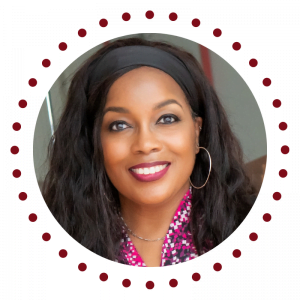
Want Karan to be Your Podcast Guest?
- Blended Workforces & the Gig Economy
- Critical Execution Tactics of High-performing Leaders
- Entrepreneurism & Leading Your Business

Want to be a Podcast Sponsor?
All sponsorships come with a featured spot on show notes pages.
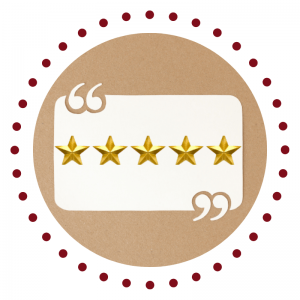
Like the Show? Please Leave a Review
If you like the show, it would mean the world to her if you left a quick review.
Your word is golden, so a HUGE thank you in advance!

#KeepInTouch
via our podcast alerts
Subscribe now to discover why thousands of monthly listeners who are passionate about doing their best work prioritize time each week to listen to the Blended Workforces @Work podcast.
#AboutSDL
#WhereToFindUs
MAILING
4480-H South Cobb Drive
PMB 219
Smyrna, GA 30080
PHYSICAL
2121 NewMarket Parkway
Ste. 108
Marietta, GA 30067
#ContactOptions
Customer Service Email:
service@shockinglydifferent.com
Call or Text:
770-384-1103
#Office Hours
MON-FRI
8:30 AM – 6:30 PM
Weekends By Appointment

